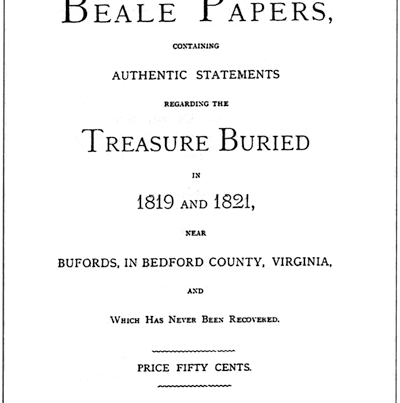The one consolation of the Antifederalist persuasion is telling everyone you meet “I told you so.” Granted, this does not go down well in most circles, be they progressive, socialist, conservative, neo-conservative, constitutionalist, et al. At best, some of these folk will agree that the Antifederalists were correct about the consolidation of power in the federal government, the excesses of a law making federal judiciary, and the eclipse of the states as political societies. They would also add a hearty, “Thank God” for all of these trends. These folks are also quick to remind me that my people have been beaten down horse, foot, and dragoons. The polite thing, I suppose, would be to keep silence about the emperor’s clothes, or lack thereof. To do so, however, means to ignore the real and present danger facing us.
This danger has been with us before the ink dried on the Constitution. This bundle of compromises was experimental, its best parts reflective of a substantial history of self-government in the colonial era, its worst features ambiguous, abstract principles buried in the document set to go off as time bombs of conflict. One example will suffice. The supremacy clause is hailed by nationalists as the stake through the heart of state sovereignty; states’ rights folks have argued that the supremacy clause only applies to those federal laws which are constitutional. The constitution itself is silent on who has the final authority regarding constitutional interpretation, after all Chief Justice John Marshall slipped judicial review in the back door in his decision in Marbury v. Madison. Let’s go a bit further down this row. How is it that the supremacy clause is not amended in some fashion by the ninth and tenth amendments? I once asked a dean of prominent law school this question, to which he replied that essentially these amendments are merely polite nothings. More importantly, the federal republic was not the most stable of political regimes. The funding and assumption debate pushed a number of New England congressman to contemplate secession, the Hartford Convention also contemplated this same path in 1814, the Missouri Crisis created a permanent north/south division in the country, the Nullification Crisis was next, Representative Abraham Lincoln called for secession as a protest to the Mexican American War, the crisis of 1850 had some Southerners contemplating secession, and finally there was 1861. Six major domestic crises in seventy-two years and the grandchildren of the people who framed the Constitution locked in deadly combat by 1861 is a pretty good indication of political instability. Perhaps the greatest danger to the federal republic emerged from the Union’s victory in the War Between the States. Secession as a viable political option was laid to rest (or so we are told), and consent of the governed was a one-time deal that occurred with the “people’s” ratification of the Constitution. Thus, you and I dear reader are left with few to no alternatives to the current regime.
It is the current regime to which we should turn our attention. Whether you call the regime the “deep state” or “the military industrial complex,” or perhaps John Taylor of Caroline’s term, “the paper aristocracy,” it is all one and the same. The regime we live under is a consolidated national regime under the control of career politicians, high ranking bureaucrats, financiers, and leaders of strategic industries. The regime is designed in its practices to enrich and enable the activities of these rulers, and does so through a system of finance that Richard Duncan has labelled “creditism.” Creditism is simply another version of John Taylor’s paper system. Instead of relying upon capital formation through savings and investment, central banks stimulate production by manipulating interest rates downward which lowers the borrowing costs for both government, banks and financial houses, and larger corporations. Private and public debt have ballooned under these practices, asset prices have been elevated and levitated by “carry trades” playing the spreads in loans and returns, and yet as of late the promised economic growth has not emerged. In fact, credit expansion is now entering its diminishing marginal return phase. In the first quarter of this year it took $10.00 of debt to create $1.00 of economic growth. The mega credit cycle which began at the end of World War Two looks to be getting long in the tooth. If that cycle ends and no new credit is created, look out below.
Enter our candidates for president. Mrs. Clinton is the veritable insider, a standing member of the deep state with considerable support from the important Wall Street banks. She is ambitious and reportedly ruthless, and completely lacking the political skills and even the political prudence of her husband. The deep state loves her which is why many Republicans will vote for her. Mr. Trump is not a standing member of the deep state and is a bit of a wild card. His appeals are to those who have been alienated or dispossessed by the policies of the deep state leadership, particularly the old Reagan Democrats who will have their last hurrah in this election. Neither is an enemy of creditism, nor does either candidate understand that the great credit cycle and demographic cycle that fueled much of the prosperity of the twentieth century is winding down. Curiously the battle between deep state Hillary and Donald the populist is part of a larger global trend where the various and sundry elites in Europe and associated global organizations are experiencing a crisis of confidence with the voting public, leading to a surge in populist and nationalist movements throughout the European Union. Thus the American trend and the crisis of the deep state in America is part of a larger global trend in western political de-stabilization.
Neither Mrs. Clinton or Mr. Trump have any policies which would even remotely return any authority to the states, not that many of the states would wish for it back. Indeed, the ascendancy of these two characters, who are both northerners, is more of a sign of the ills that afflict the body politic than of any cure on the horizon. Both gravitate to New York City as their cultural milieu. Neither candidate would even begin to understand the traditions, history or culture of the South, unless it was Houston or Atlanta. Both candidates are heavily invested in a status quo that seems to be running its course, and both candidates are blissfully unaware of this fact.
For Southerners who wish to see some recovery of states’ rights and local governance the importance of this year’s election is not in who wins. Neither candidate understands the crisis facing the country, and if they did it is doubtful they could formulate and implement effective policies to address the crisis. Both candidates are running on who can best preserve a status quo that is rapidly receding. The question for us is how do we pick up the pieces and build a more stable and just political order upon the organic remnants of the traditions and practices bequeathed to us. It is time to pull Patrick Henry and the other southern antifederalists off the shelf and give them a read. In the near future we will have need of their wisdom.







